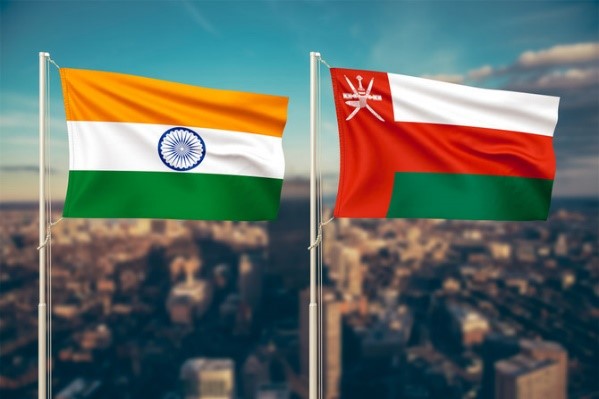
India-Oman FTA stalls over market access concerns and potential Chinese trade circumvention
NEW DELHI : Negotiations for a comprehensive economic partnership between India and Oman have reached a critical juncture, with complex trade dynamics and geopolitical considerations complicating the proposed Free Trade Agreement (FTA).
While talks on the agreement have progressed to cover over 200 trade lines, significant challenges remain that could potentially impact regional economic strategies.
The proposed Comprehensive Economic Partnership Agreement (CEPA) aims to eliminate duties on critical sectors including petroleum, textiles, electronics, pharmaceuticals, machinery, and iron and steel.
Currently, more than 80 per cent of Indian exports to Oman face an average 5 per cent import duty, with Oman’s import duties ranging widely from 0 per cent to 100 per cent across different product categories.
Oman seeks to expand the agreement to approximately 500 trade lines, a proposal that Indian officials have been reluctant to embrace.
The West Asian country remains firm on demanding market access for a broader range of products, which has created a deadlock in negotiations completed in March.
Of particular strategic concern is the potential for China to exploit the trade agreement as a mechanism for circumventing international trade restrictions.
Indian officials are apprehensive that China might use Oman as an intermediary to dump goods into the Indian market, especially in response to steep tariffs imposed by the European Union and potential similar actions by the United States.
The EU’s Carbon Border Adjustment Mechanism (CBAM) has added another layer of complexity to these trade discussions.
India sees potential benefits in establishing manufacturing units dedicated to exporting green products, which could help address challenges posed by the impending carbon tax on embedded emissions in products like steel and aluminium.
Oman’s interest in the FTA extends beyond immediate trade considerations.
The agreement represents an opportunity for the Gulf nation to diversify its economy away from oil exports by gaining preferential access to Indian goods and services.
The proposed agreement includes potential inclusions in agricultural goods, processed foods, chemicals, plastics, and select service sectors.
The negotiations reflect broader geopolitical and economic tensions, with concerns about Chinese state subsidies and market dominance underlying the cautious approach.
European and American trade policies have pushed China to seek alternative market access routes, raising international apprehension about potential trade manipulation.
As discussions continue, both nations must navigate complex economic interests, balancing bilateral trade opportunities with strategic economic protections.
The outcome of these negotiations could significantly impact regional trade dynamics and economic cooperation.

